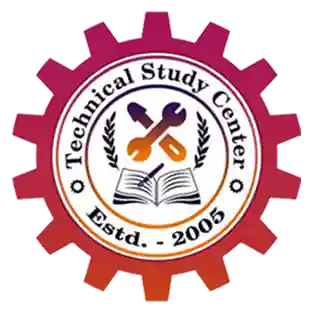In every industry that builds machines, tools, or equipment, precision is everything. A small mistake in shaping metal can cause big problems in industries like aerospace, automobiles, and manufacturing. That is why the job of a Turner is so important. Turners shape raw metal into perfectly sized machine parts using a lathe machine, ensuring that engines, machines, and tools work smoothly.
At Technical Study Center, we provide top-class training for ITI Turner courses, helping students become experts in lathe machine operations, metal shaping, and modern machining techniques. We do not just focus on exams but on real-world skills that help students build a successful career.
Smart Learning Techniques for ITI Turner Students
Many students believe that working on a lathe is only about cutting, shaping, and polishing metal. But to become an expert Turner, one must learn smart techniques that improve precision and efficiency.
1. Understanding the Science Behind Metal Cutting
A good Turner does not just cut metal; they understand how metal behaves under different conditions.
- Choosing the Right Cutting Speed – Turning soft metals like aluminum needs a fast spindle speed, while harder metals like stainless steel need a slower speed. The wrong speed can damage tools and waste material.
- Using the Correct Cutting Tool – There are different cutting tools for different jobs. Carbide tools work best for high-speed turning, while high-speed steel (HSS) tools are good for detailed work. Learning this saves time and material.
- Understanding Chip Formation – When turning metal, the way the chips (waste material) come off tells a lot about the cutting process. Thin, spiral-shaped chips mean the machine is working well, while thick, broken chips mean something is wrong.
Learning these small details improves efficiency and quality.
2. Mastering Advanced Lathe Machine Techniques
Most ITI students only learn basic turning, but industries need Turners with advanced skills.
- Taper Turning for Precision Parts – Many machine parts are not straight but slightly tapered (like a drill bit or a tool handle). Learning how to turn accurate tapers makes a Turner more skilled.
- Thread Cutting for Screws & Bolts – Many machines need custom screws and bolts. Knowing how to cut perfect threads increases job opportunities.
- Knurling for Grip Improvement – Some machine parts, like tool handles, need a rough grip surface. Learning knurling techniques helps make high-quality products.
These advanced skills make a Turner stand out in the industry.
3. Mastering Lathe Machine Maintenance
A good Turner not only works on the machine but also maintains it for long-term use.
- Aligning the Lathe Bed Properly – If the machine is not aligned, the cutting will not be straight, leading to faulty parts.
- Checking Lubrication & Cooling Systems – Lathe machines work at high speeds, generating heat. Without proper lubrication and cooling, tools can wear out faster.
- Regular Inspection of Cutting Tools – A dull tool creates rough surfaces and increases material waste. Learning to sharpen and replace tools correctly improves efficiency.
Proper machine maintenance saves time and prevents errors.
4. Preparing for ITI Exams & Government Job Opportunities
Government sectors like Indian Railways, BHEL, ONGC, and Defense factories need skilled Turners for machine and tool production. At Technical Study Center, we help students prepare for ITI exams and government job tests with:
- Exam-Oriented Study Plans – Covering lathe machine operations, safety procedures, and measurement techniques.
- Mock Tests & Practical Training – Helping students understand real-world industrial challenges.
- Shortcut Techniques for Faster Work – Learning how to increase accuracy while reducing material waste.
With the right preparation, students can secure jobs in government and private industries.
5. Hands-On Training with Real Industrial Projects
At Technical Study Center, students do not just learn from books—they work with real machines.
- Manufacturing Small Machine Parts – Students practice making bushes, shafts, and gears.
- Precision Turning for Aerospace & Automobile Parts – Learning high-accuracy machining for specialized industries.
- Creative Lathe Projects – Encouraging students to design and make their own tools and components.
This real-world experience builds confidence and technical expertise.
6. Learning Professional Skills for a Successful Career
Apart from technical knowledge, a successful Turner must also develop professional skills.
- Time Management – Completing turning jobs quickly and efficiently.
- Quality Control – Checking if finished parts meet size, shape, and smoothness standards.
- Communication Skills – Understanding work instructions, reading machine blueprints, and discussing technical details with supervisors.
At Technical Study Center, we ensure students develop both technical and soft skills to build a strong career.
